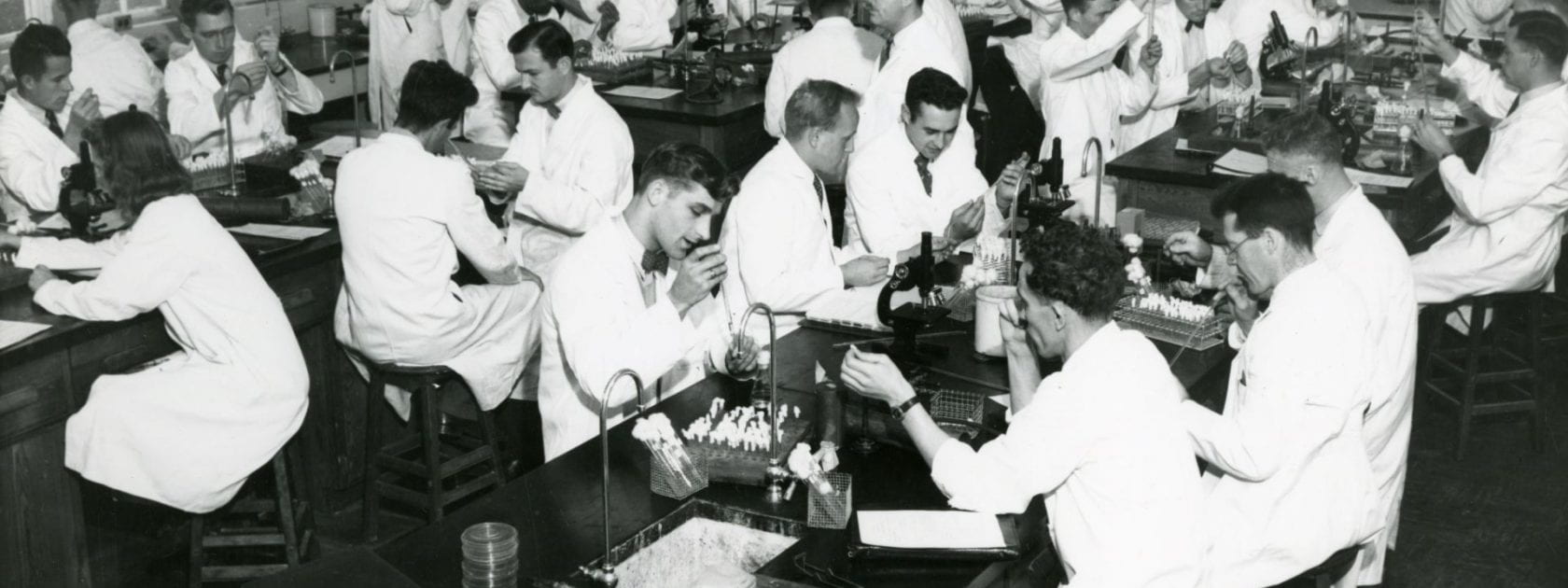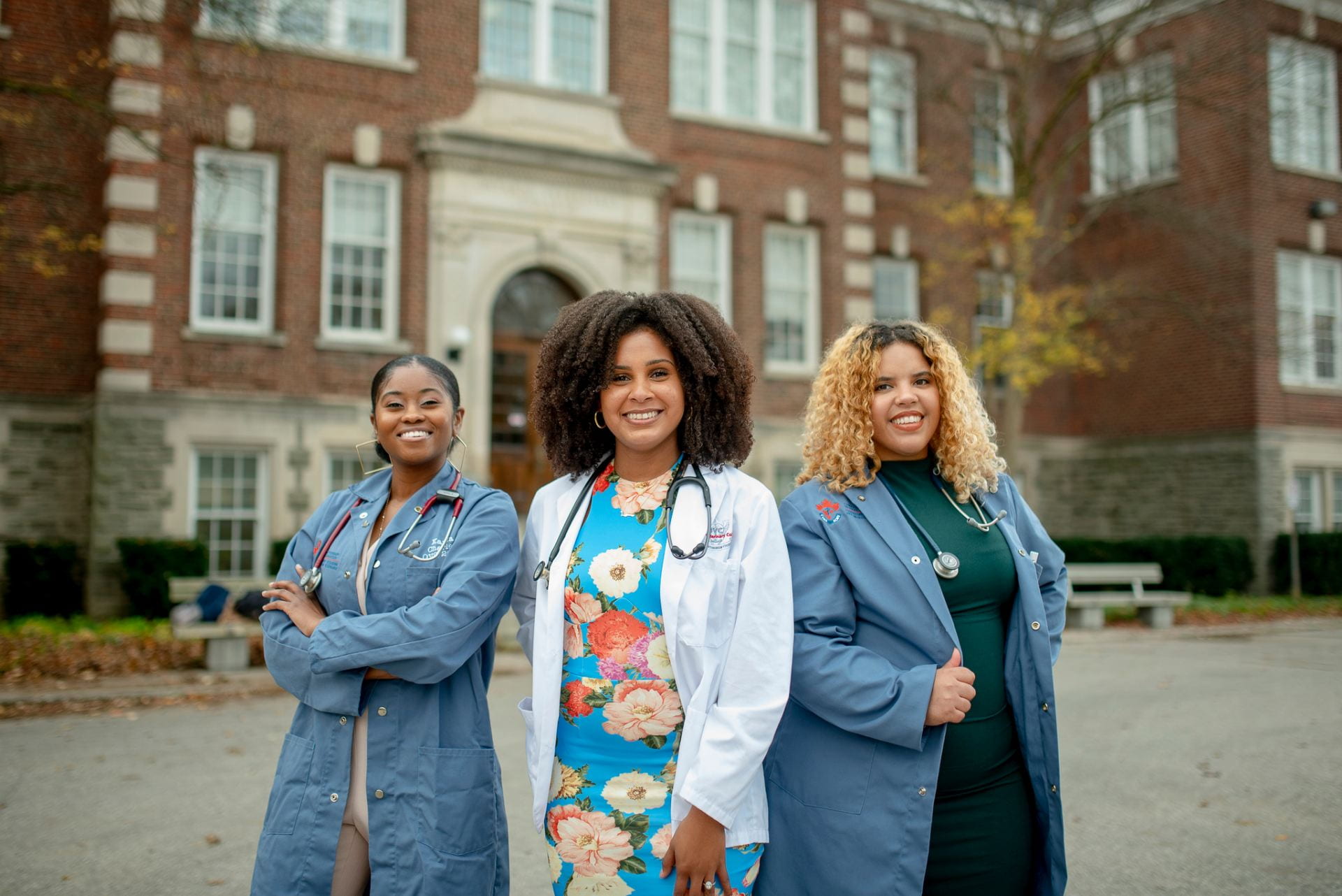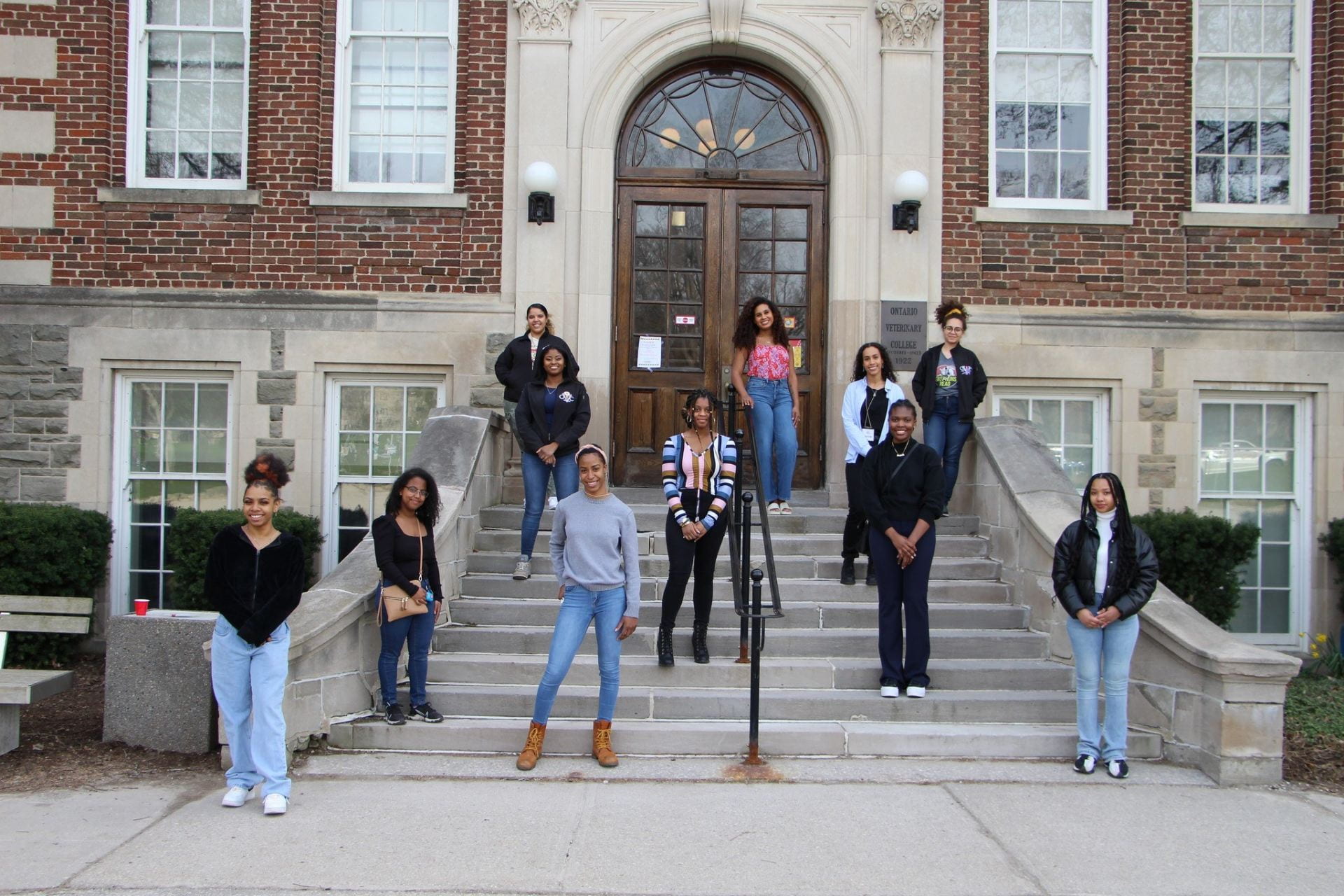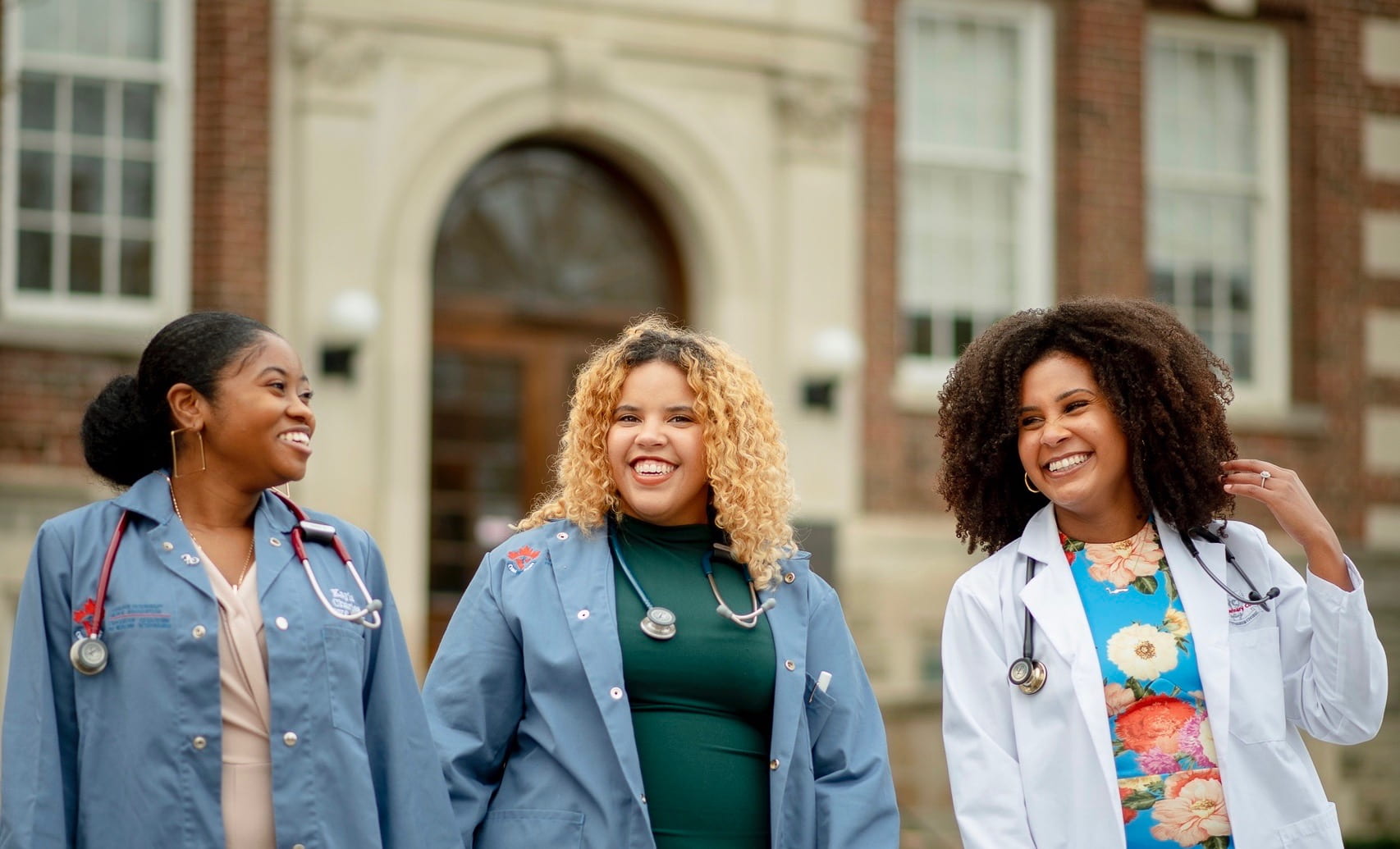The voices of student veterinarians are often absent from historical records. We know what they were taught and the kinds of careers they often chose to pursue, but often little is known about their experience as students, their decision to study veterinary medicine, their thoughts and opinions about veterinary education, and what mattered to them about the profession, animal health, and the roles of animals more broadly in society. Fortunately, members of the OVC Class of 2022 have provided some insights into their thoughts on becoming members of the veterinary profession, their thoughts about completing veterinary school during such a unique time in history, and what they see for the future of the profession.
For members of the Class of 2022, a lifelong love for animals, the human-animal bond, and a desire to help led them to pursue a career in veterinary medicine. Moreover, some sought a challenging career in the sciences with the options of practice as well as research and discovery. For those who responded, the majority planned to pursue mixed or companion animal practice immediately upon graduation with a few choosing to pursue specialties and further training and education.
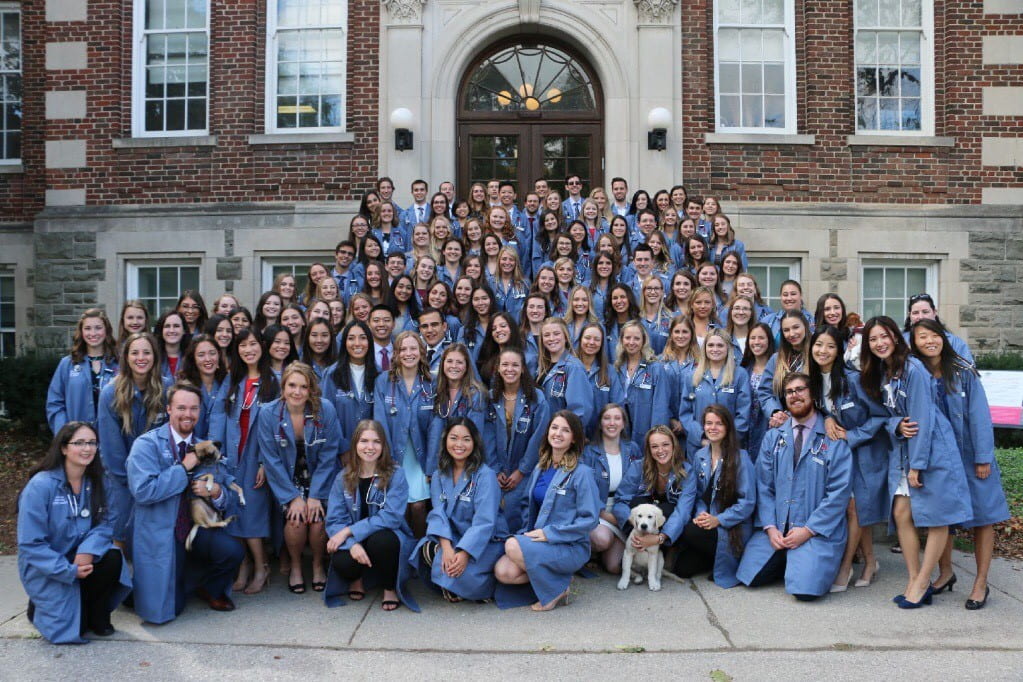
VIBE – Veterinary professionals Instilling Black Excellence
The Black, Indigenous, People of Colour (BIPOC) community has been a part of the OVC since very early in its history. Students from the Caribbean as well as a handful of students from overseas, the United States and Canada have counted among the student body. However, their experience as students is largely unknown and their numbers have and continue to be very small. For the Black community in Canada, which makes up roughly 16.5% of the population of Ontario, they make up less than 1% of the veterinary profession.
This underrepresentation in student veterinarians and lack of diversity in the profession more broadly spurred the launch of the first national Black-led organization Canadian VIBE (Veterinary Professionals Instilling Black Excellence) Network. VIBE was established in 2020 by Ontario Veterinary College students Melanie Moore, Kayla Charles, and Keisha Harris.
As three of the only four Black veterinary students in Ontario (as of 2020), they decided it was time to disrupt the oppressive system and enact systemic change that focuses on increasing Diversity, Equity, and Inclusion (DEI) in the veterinary profession. VIBE strives to increase the Black leadership presence in veterinary medicine by:
- Facilitating relationships with the Black veterinary community to create a safe space
- Provide new opportunities for aspiring Black veterinary professionals by creating partnerships with industry, universities, and clinics
- Empowering Black veterinary professionals through the collaboration of knowledge via educational seminars and personal development workshops
Over the past two years, the pandemic has spotlighted the apparent lack of diversity within veterinary medicine. Despite the recognition of the lack of Black representation in the profession, there is currently no available race-based statistics pertaining to veterinary medicine in Canada. Statistics from the American Veterinary Medical Association highlights this underrepresentation, with only 2% of the veterinary profession occupied by Black individuals at any given time.
VIBE’s goals are to connect and encourage representation of the Black community in veterinary medicine. To do this, they are working to build online directories of Black veterinary professionals, creating mentoring programs to connect current professionals with current and prospective student veterinarians, partnering with industry to provide outreach and resources to Black-identifying youth interested in the profession, and providing webinars, podcasts, and other materials for professional development and discussion about issues of race in medicine.
Veterinary Education During a Pandemic
Like the OVC Class of 1922, the OVC Class of 2022 had their education tremendously influenced by a global pandemic. Covid-19 dramatically reshaped their education and when asked, many pointed to a difficult and isolating experience forced by the pandemic. Despite these challenges, members of the class described the support they received from one another, their families, and faculty, and their appreciation for the opportunities for hands-on learning when they were able to have them.
More broadly, the Class of 2022 spoke of animals in our lives meaning more to us than ever before. As a result, the expectations placed on veterinarians for their care and wellbeing is both demanding and in demand more than ever. Although a lucrative career, some members of the Class of 2022 noted the emotional and financial toll that advanced veterinary care takes on animals, their owners, and their veterinarians. Moreover, many saw the end of their time at the OVC as just a step in a lifelong career of learning and improving both their skills and the delivery of care to a wide variety of companion and large animals.


